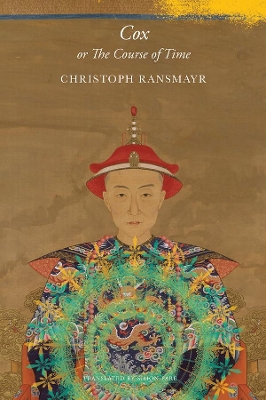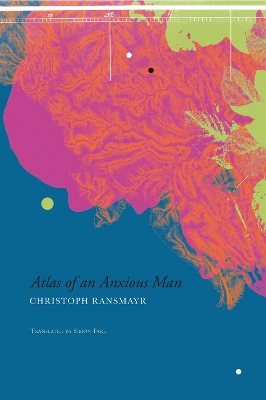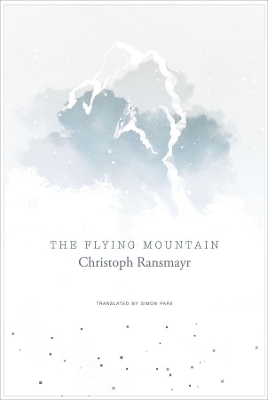The German List - (Seagull Titles CHUP)
3 total works
Richly imagined and recounted in vivid prose of extraordinary beauty, this book is a stunning illustration of Ransmayr’s talent for imbuing a captivating tale with intense metaphorical, indeed metaphysical force.
The world’s most powerful man, Qiánlóng, emperor of China, invites the famous eighteenth-century clockmaker Alister Cox to his court in Beijing. There, in the heart of the Forbidden City, the Englishman and his assistants are to build machines that mark the passing of time as a child or a condemned man might experience it and that capture the many shades of happiness, suffering, love, and loss that come with that passing.
Mystified by the rituals of a rigidly hierarchical society dominated by an unimaginably wealthy, god-like ruler, Cox musters all his expertise and ingenuity to satisfy the emperor’s desires. Finally, Qiánlóng, also known by the moniker Lord of Time, requests the construction of a clock capable of measuring eternity—a perpetuum mobile. Seizing this chance to realize a long-held dream and honor the memory of his late beloved daughter, yet conscious of the impossibility of his task, Cox sets to work. As the court is suspended in a never-ending summer, festering with evil gossip about the monster these foreigners are creating, the Englishmen wonder if they will ever escape from their gilded cage. More than a meeting of two men, one isolated by power, the other by grief, this is an exploration of mortality and a virtuoso demonstration that storytelling alone can truly conquer time.
The world’s most powerful man, Qiánlóng, emperor of China, invites the famous eighteenth-century clockmaker Alister Cox to his court in Beijing. There, in the heart of the Forbidden City, the Englishman and his assistants are to build machines that mark the passing of time as a child or a condemned man might experience it and that capture the many shades of happiness, suffering, love, and loss that come with that passing.
Mystified by the rituals of a rigidly hierarchical society dominated by an unimaginably wealthy, god-like ruler, Cox musters all his expertise and ingenuity to satisfy the emperor’s desires. Finally, Qiánlóng, also known by the moniker Lord of Time, requests the construction of a clock capable of measuring eternity—a perpetuum mobile. Seizing this chance to realize a long-held dream and honor the memory of his late beloved daughter, yet conscious of the impossibility of his task, Cox sets to work. As the court is suspended in a never-ending summer, festering with evil gossip about the monster these foreigners are creating, the Englishmen wonder if they will ever escape from their gilded cage. More than a meeting of two men, one isolated by power, the other by grief, this is an exploration of mortality and a virtuoso demonstration that storytelling alone can truly conquer time.
In The Atlas of an Anxious Man, Christoph Ransmayr offers a mesmerizing travel diary-a sprawling tale of earthly wonders seen by a wandering eye. This is an exquisite, lyrically told travel story. Translated by Simon Pare, this unique account follows Ransmayr across the globe: from the shadow of Java's volcanoes to the rapids of the Mekong and Danube Rivers, from the drift ice of the Arctic Circle to Himalayan passes, and on to the disenchanted islands of the South Pacific. Ransmayr begins again and again with, "I saw..." recounting to the reader the stories of continents, eras, and landscapes of the soul. Like maps, the episodes come together to become a book of the world-one that charts the life and death, happiness and fate of people bound up in images of breathtaking beauty. "One of the German language's most gifted young novelists."-Library Journal, on The Terrors of Ice and Darkness
In a publishing world that is all too full of realist novels written in undistinguished prose, discernible only by their covers, The Flying Mountain stands out if for no other reason than that it consists entirely of blank verse. And that form is most suitable for the epic voyage Christoph Ransmayr relates: The Flying Mountain tells the story of two brothers who leave the southwest coast of Ireland on an expedition to Transhimalaya, the land of Kham, and the mountains of eastern Tibet looking for an untamed, unnamed mountain that represents perhaps the last blank spot on the map. As they advance toward their goal, the brothers find their past, and their rivalry, inescapable, inflecting every encounter and decision as they are drawn farther and farther from the world they once knew. Only one of the brothers will return. Transformed by his loss, he starts life anew, attempting to understand the mystery of love, yet another quest that may prove impossible. The Flying Mountain is thrilling, surprising, and lyrical by turns; readers looking for something truly new will be rewarded for joining Ransmayr on this journey.


